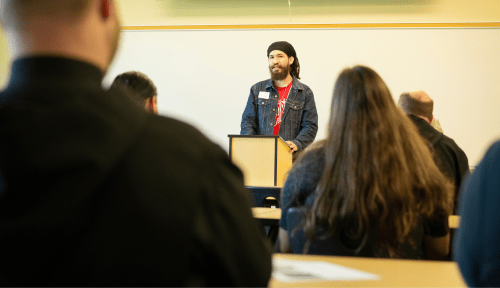If a research paper is co-authored, this must be stated and explained in the research proposal. Applicants should provide a rationale for including two presenters rather than one, especially if it is not obvious from the methodology or multi-disciplinary nature of the project.
When crafting your presentation, assume that the audience knows nothing about your specific topic, but is interested in learning more about your work.
Hint: Consider an introduction that does one of the following:
Places your research topic in a larger context.
Tells the audience how you first became interested in your topic.
Informs the audience about a major scholarly debate on the topic.
Refers to new discoveries or theories on the subject.
Plan to highlight one or two aspects of your research project, since there will not be enough time to present your entire project in detail.
Practice and time your presentation so that you will know exactly how much information to offer.
Hint: If you come from a discipline that typically prepares a written paper for academic conferences (i.e., the Humanities), you should plan for five to six double-spaced pages.
Hint: Even if you plan to read your Scholars Day paper, you should practice it enough times so that you are comfortable looking up and making eye contact frequently with the audience!
Consider preparing visual aids, such as PowerPoint slides, Prezi slides, and/or printed handouts.
If you do plan to use visual aids, save your presentation on a flash drive in a Windows compatible format and bring it with you to the presentation room.


